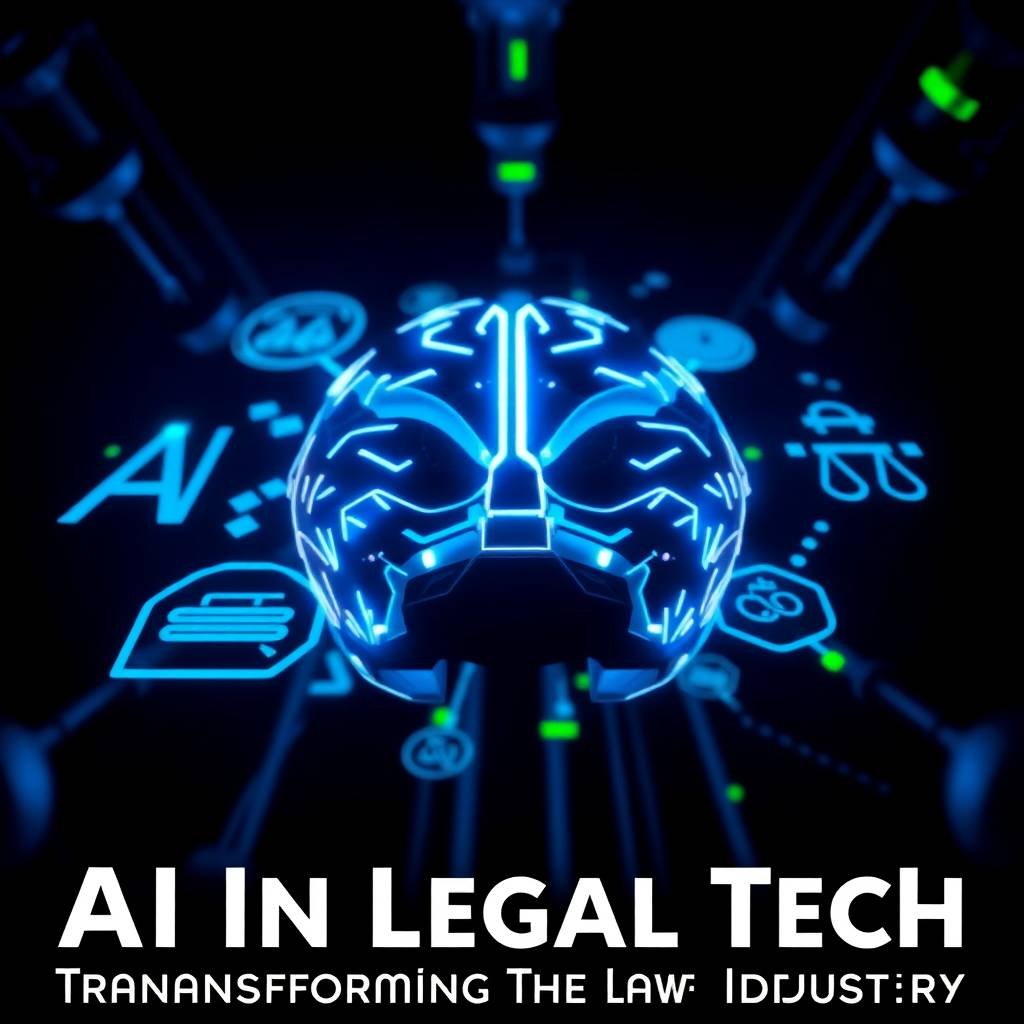In recent years, the legal industry has begun embracing technological advancements at an unprecedented rate. According to a report by PwC, 77% of legal departments are expected to rely on technology solutions by 2025. Artificial intelligence (AI) is at the forefront of this transformation, offering law firms new ways to enhance efficiency, accuracy, and client service.
The Rise of AI in Legal Services
Understanding AI’s Role
Artificial intelligence is revolutionizing the legal industry by enhancing the capabilities of legal professionals rather than replacing them. This technology automates routine tasks and provides powerful data analysis, allowing lawyers to focus on more complex and strategic activities.
Key Applications of AI in Law
- Legal Research and Analysis: AI tools can process vast amounts of data swiftly, providing insights and legal precedents that would take human researchers significantly longer to compile. Platforms like ROSS Intelligence use AI to improve the efficiency and accuracy of legal research.
- Document Automation: AI-driven software can automate the creation and management of legal documents and contracts, saving time and reducing the risk of human errors.
- Predictive Analytics: By examining historical data, AI can predict case outcomes, offering lawyers valuable insights for developing more effective legal strategies. Tools such as Lex Machina are paving the way in this domain.
The adoption of these technologies is gradually becoming a norm, paving the way for a more efficient and data-driven approach to legal services.
Benefits of AI Integration in Legal Practices
Enhanced Efficiency
AI technologies streamline legal workflows by automating time-consuming tasks such as document review and data entry. This allows legal professionals to handle more cases effectively and focus on higher-value activities that require human judgment and insight.
Improved Accuracy
By minimizing human error, especially in document preparation and data analysis, AI ensures a higher level of precision in legal proceedings. Automated systems can cross-reference documents and check for inconsistencies, reducing the risk of costly mistakes.
Cost-Effectiveness
The automation of routine tasks not only speeds up processes but also reduces the overhead costs associated with manual labor. This cost efficiency translates into more affordable legal services for clients, making law firms more competitive in the market.
The integration of AI in legal practices is not just a technological advancement but a strategic move towards a more innovative, client-focused service delivery.
Challenges and Considerations
Ethical Concerns
The use of AI in legal tech raises significant ethical questions, particularly around data privacy and algorithmic bias. Ensuring that AI systems are transparent and fair is crucial to maintaining public trust and upholding the integrity of the legal profession.
Implementation Barriers
Law firms face several challenges when integrating AI technologies, including high initial costs and the complexity of implementation. Additionally, there may be resistance from staff unfamiliar with new technologies, which can hinder the adoption process. Investing in training and change management is essential to overcome these barriers.
Despite these challenges, the potential benefits of AI far outweigh the risks, making it an essential consideration for forward-thinking legal practices.
Future of AI in the Legal Industry
The future of AI in legal tech holds tremendous promise, as continuous advancements in machine learning and data analytics are expected to further enhance the capabilities of legal professionals. As AI becomes more sophisticated, it will open new avenues for innovation and client engagement.
We can anticipate AI-driven platforms that offer personalized legal advice, streamlined dispute resolution processes, and more proactive legal services that anticipate client needs. Furthermore, AI could play a significant role in democratizing access to legal services, making them more affordable and accessible to a broader audience.
The legal industry is on the cusp of a technological revolution, and those who embrace AI will be well-positioned to lead the charge into a more efficient and dynamic future.
Conclusion
AI is undeniably reshaping the legal landscape, offering transformative benefits that enhance efficiency, accuracy, and accessibility in legal services. While there are challenges and ethical considerations to address, the potential advantages make AI an indispensable tool for modern legal practices.
As law firms and legal professionals continue to embrace these technologies, they pave the way for a more innovative, client-focused approach to legal services. The journey is just beginning, and the future of AI in the legal industry promises to be as dynamic as it is exciting.

